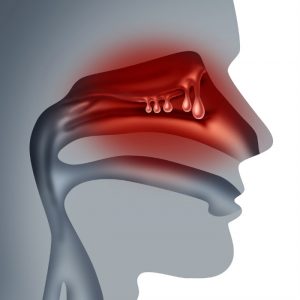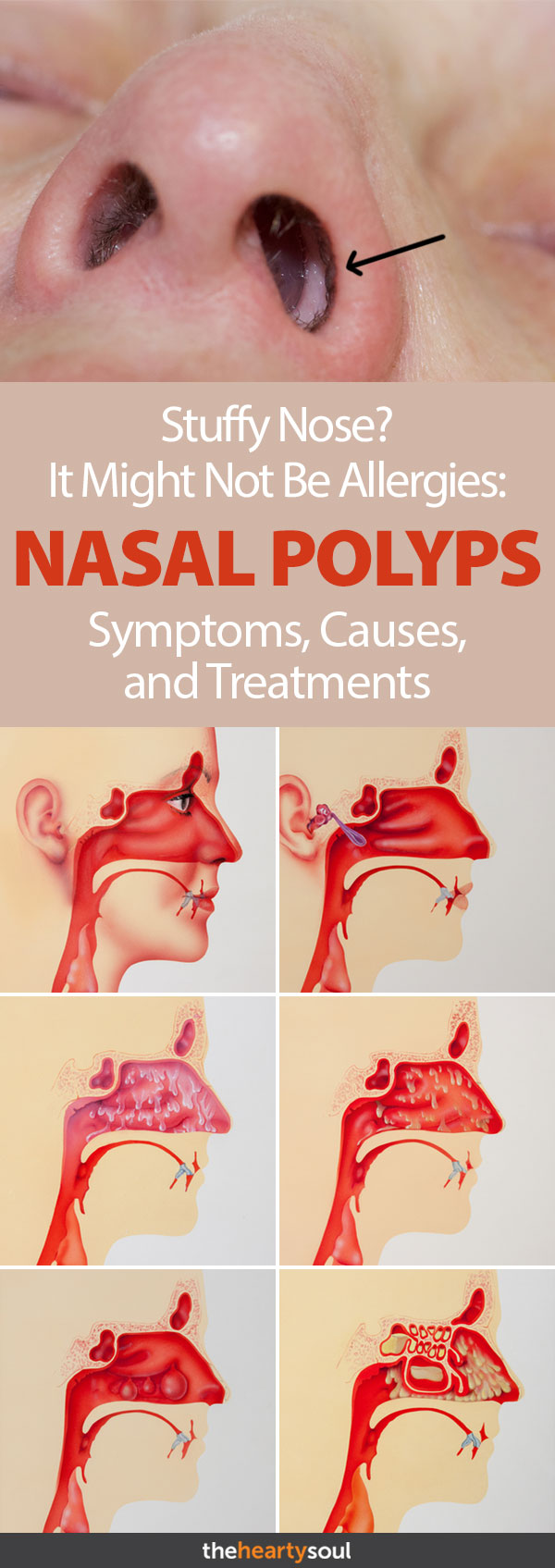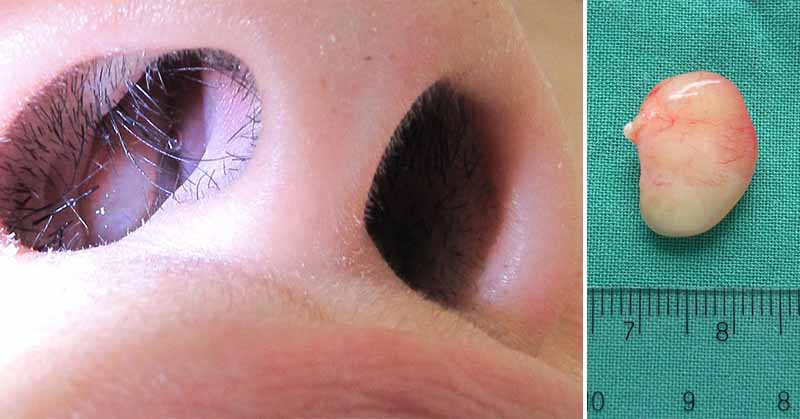You know that feeling when you blow your nose and whatever’s stuck in there just isn’t coming out? Yup, not a comfortable one. When blowing fails to solve your problem, you start picking only to find a small bump that just won’t budge. It’s frightening to discover a growth somewhere in or on your body you know shouldn’t be there. But before you panic, we have an idea of what it might be and what to do if you ever get one.
Nasal Polyps: What Causes Them?
As worrisome and foreign as they may sound, they are quite common. Nasal polyps, you’ll be happy to know, are soft, painless, and very rarely cancerous. Most often, they form along the lining of your nasal passages or sinuses and seem to hang there like droplets or grapes. Although there is no single cause, medical experts largely agree that nasal polyps are hereditary or linked to chronic inflammation (e.g., asthma, allergies, drug sensitivity, chronic infections, and certain immune disorders).[1,2]
If nasal polyps are so common, who is most likely to get them?
While nasal polyps can affect anyone at any age, most cases are found in adults 40-years-old and up. For reasons unknown, men are twice as likely to develop them than women, while children 10-years-old and below are rarely affected. Should a child develop nasal polyps early on, however, doctors will test him or her for cystic fibrosis.[1]
Nasal Polyps Symptoms
Nasal polyp symptoms may include:[3,4]
- Runny, stuffy nose, postnasal drip, sneezing
- Lessened sense of taste and loss of smell
- Headaches and facial and upper teeth pain
- Sense of pressure over the forehead and face
In addition to these most common symptoms, other signs can include:[5]
- Wheezing
- Snoring
- Sensitive to air pollutants, such as: fumes, odors, dust, and chemicals
When You Should Seek (Immediate) Medical Attention
One thing you will have probably noticed while reading the signs and symptoms above is that they’re awfully similar to that of common colds, allergies, and sinus infections. So, as a rule of thumb, doctors suggest that you seek medical attention after 10 days of having nasal polyp symptoms. That way, you will ideally have dealt with potential allergies, colds, or infections.
If you experience any of the points below, however, doctors urge you to go to emergency or call 911 immediately:[4]
- The symptoms above getting increasingly worse
- Trouble breathing
- Vision problems or inability to move your eyes easily
- Severe swelling or itching around your eyes
- Severe headaches, high fever, or inability to tip your head forward without feeling pain
How to Treat Your Nasal Polyp
Whether you think you have nasal polyps or have spotted one by checking yourself, it’s best to let your doctor do the rest. Irritating a polyp can lead to it bleeding and scabbing which will only cause further discomfort.
Any doctor will likely use a nasal endoscope (or, magnifying lens) to get a better look at it. Depending on whether there is one large nasal polyp or a group of smaller ones, there are a few convention treatments.[6]
- Nasal steroid sprays or corticosteroid pills will help shrink them and clear the nasal passages
- Allergy medicines may also help to prevent nasal polyps from returning (although they often do)
- Endoscopic sinus surgery is a simple nasal polyp removal procedure that uses a thin, lighted tube with instruments at the end (plus, you can almost always go home the same day)
Is it possible to treat nasal polyps naturally?
While there doesn’t seem to be a natural remedy that is more effective at treating nasal polyps than conventional methods, you can definitely take steps to minimize inflammation such as avoiding food allergens, improving indoor air quality, avoiding respiratory triggers such as pollution from dust or heavy traffic, and taking care of your immune system.

Sources
- [1] What Are Nasal Polyps? (n.d.). Retrieved September 26, 2017, from https://www.webmd.com/allergies/nasal-polyps-symptoms-and-treatments#1
- [2] Nasal polyps. (2017, August 09). Retrieved September 26, 2017, from https://www.mayoclinic.org/diseases-conditions/nasal-polyps/home/ovc-20267294
- [3] What Are Nasal Polyps? (n.d.). Retrieved September 26, 2017, from https://www.webmd.com/allergies/nasal-polyps-symptoms-and-treatments#1-2
- [4] Nasal polyps. (2017, August 09). Retrieved September 26, 2017, from https://www.mayoclinic.org/diseases-conditions/nasal-polyps/symptoms-causes/dxc-20267326
- [5] What Are Nasal Polyps? (n.d.). Retrieved September 26, 2017, from https://www.webmd.com/allergies/nasal-polyps-symptoms-and-treatments#1-2
- [6] Nasal polyps. (n.d.). Retrieved September 26, 2017, from https://medlineplus.gov/ency/article/001641.htm

